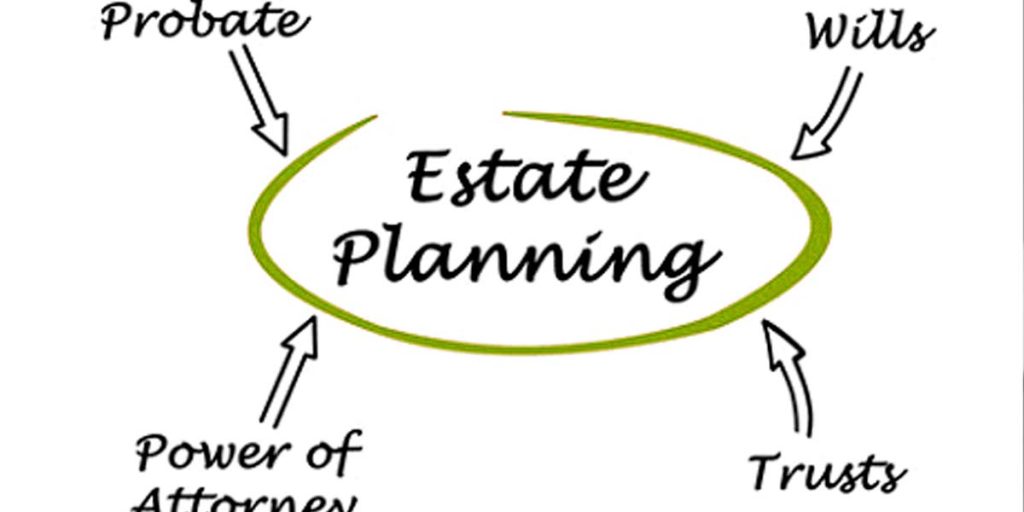Every individual spends his or her whole life in simulating wealth for a better life for their own self and their family as well. During their lifetime, you are there to take care of your property, however, you also want to be assured that all that you own should be benefiting your loved ones after you pass away. In order to achieve this, it is essential to plan your assets. While talking about estate planning, people think that planning your estate means drafting a will, which is quite normal due to available information around it.
The fact is that drafting a will and planning your estate seems to be alike as they normally go hand-in-hand, however, a will is only one of the particular of an estate planning process. Apart from planning after death wishes, estate planning also includes drafting your desire for your health, finance, etc., during your life. Below we have summarized the difference you need to understand between the will and estate planning:
Estate Planning vs. Will-
A Will is the foundational document of estate planning and is defined as a legal document that is used to communicate the final desires of a person who has died and explains to them so that his/her estate can be managed in their chosen way. The last will and testament appoints the beneficiaries who will inherit your property after your death, an executor to ensure that all your wishes listed in the will are being fulfilled as per your instructions, a successor to your business (if any) and a guardian to look after your relatives who need assistance due to old age or disability and minor children. By leaving a will, you help your family to avoid disputes and execute the decisions as mentioned by you. In case you don’t leave a will, your property has to pass through probate which is a time and money consuming process and in-turn will be burdensome to your family. Also, the property will be dispensed as per the court’s decision and the executor will also be decided by the court.
On the other hand, estate planning is a more profound process that involves several documents to secure your assets by properly arranging proper distribution so that maximum benefits and minimum tax can be provided to the beneficiaries. An estate plan can help you to instruct against other additional matters that a will is unable to do even being mentioned in a will as it comes into effect after your demise unlike other documents of estate planning that help you during your lifetime. An estate planning comprises a last will, a power of attorney, an advanced directive, and, if you so choose, trusts for your children, grandchildren, favourite charity, or even a beloved pet. Below mentioned is what each term refers to as and how it works?
Power of Attorney:
There are two types of power of attorney viz. financial power of attorney and medical power of attorney. The former helps you to nominate a person to handle your financial issues in case you are unable to manage them due to incapacity caused by either severe illness or an accident. The person will handle your business and personal decisions related to finance according to your mentioned wishes and within the said restrictions in the document. On the other hand, the medical power of attorney helps you to nominate a person to manage your medical affairs for you in case you become disabled to do that. The person will make decisions regarding your health care according to the instructions laid by you in the document. However, in both cases, you must ensure that you must clearly mention the instructions and inform the appointed person regarding their responsibility and your wishes.
Living Will:
A living will that also refers to as an advance health-care directive, is a document that lets you state your wishes regarding the medical treatment you would like to have in case of dire medical situation. It is different from the medical power of attorney as it clearly specifies your wishes unlike the former where the agent takes decisions depending on the situation while following your wishes and instructions. It may also specify your end-of-life statement revealing after what extent of illness or treatment you would like to stop getting yourself treated and what should be done in that case.
Living Trust:
The Best way to protect and bestow for your loved ones, minors, pets and charity is to start a living trust. Through a trust, you can assign certain assets that are not included in your will, which will dispense for you during life and transferred to the beneficiaries on your death. A living trust avoids probate and thus saves money and time along with the reduction of taxes.
Beneficiary designation:
Beneficiary designations names the person who would be receiving the money from various accounts where he/she has been designated as a beneficiary of that particular account like retirement accounts, life insurance policies, and other savings. The beneficiary should be designated carefully as irrespective of what you have assigned in your last will, this designation will decide that who is actually going to get the money from that particular account. Hence, it is to be ensured that both documents have the same beneficiary of your current choice.
The purpose of both the last will and an estate plan is the same i.e. to ensure that your assets and family are secure. Any person irrespective of their age and wealth must ensure to draft a will and thus, get your estate planned.









